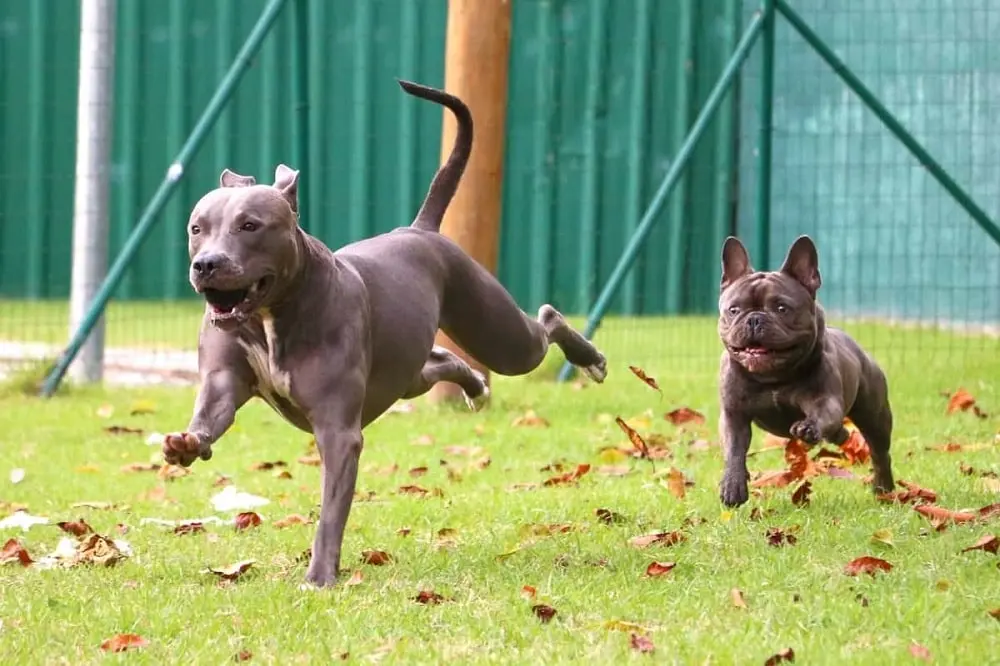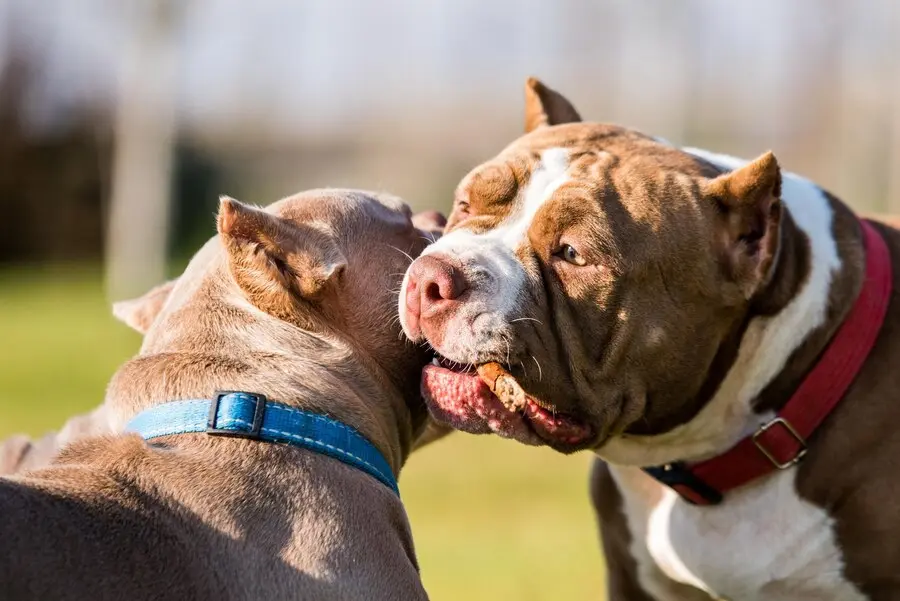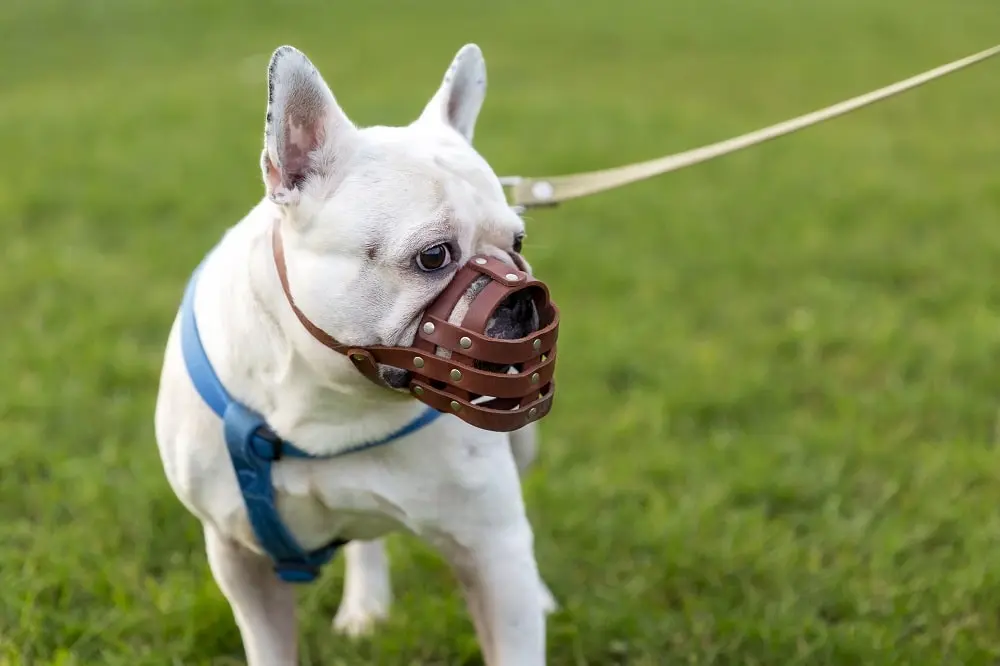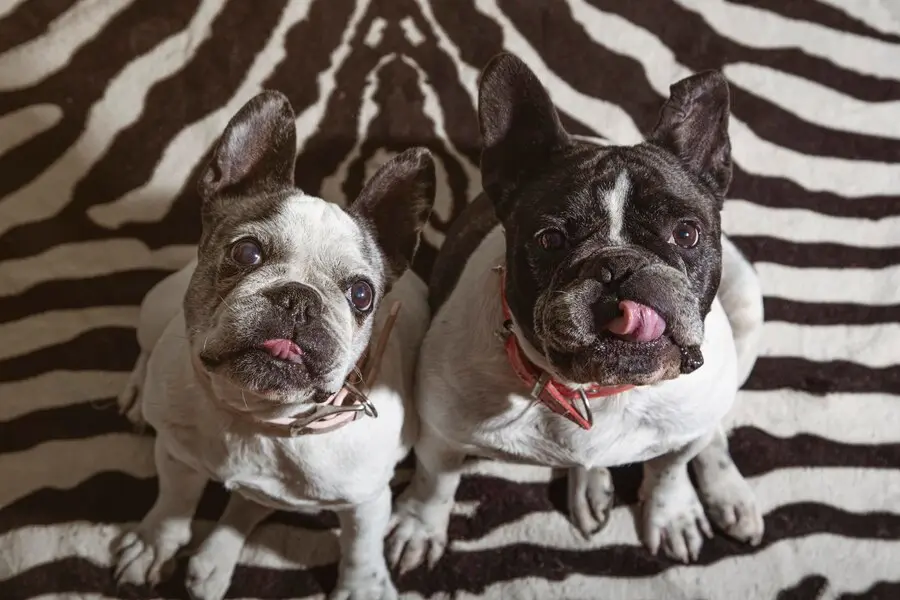Do French Bulldogs and Pitbulls get along?

Welcome to the fascinating world of canine companionship, where the dynamics of breed interactions unfold.
If you’re pondering the compatibility between French Bulldogs and Pit Bulls, you’re in the right place. In this exploration, we aim to demystify the question: Do French Bulldogs and Pit Bulls get along?
“Yes, French Bulldogs and Pit Bulls can form beautiful bonds when introduced carefully. Discover tips for fostering a harmonious relationship between these lovable breeds.”
These distinct breeds, each with its own charm and character, can form incredible bonds with the right approach. Join us on a journey through understanding their temperaments, exploring the factors influencing their compatibility, and uncovering practical tips for fostering a harmonious relationship.
Whether you’re a current pet parent or considering adding a new member to your pack, let’s navigate the path to creating a joyful, multi-breed household.
French Bulldogs vs Pit Bulls: What’s the Difference?

In the intricate tapestry of canine diversity, the distinctions between French Bulldogs and Pit Bulls are both subtle and profound. Let’s embark on a journey through the nuances that set these two captivating breeds apart.
Physical Characteristics
- French Bulldogs
French Bulldogs, with their distinctive brachycephalic features, present a beguiling image. The compressed skull, expressive bat ears, and compact yet muscular frame contribute to an unmistakable charm. The short, smooth coat further accentuates their sleek and captivating appearance.
- Pit Bulls
The term “Pit Bull” encompasses several breeds, each distinguished by robustness and athleticism. A broad head, powerful jaws, and a muscular physique define Pit Bulls. Variations in coat types and colors add to the visual diversity, underlining their historical roles in diverse working capacities.
Temperament and Personality
- French Bulldogs
Frenchies exude an affable and adaptable temperament. Renowned for their affectionate nature, they seamlessly integrate into various lifestyles. Despite their small stature, their playfulness and sturdiness make them delightful companions. The gentle disposition of French Bulldogs forms a cornerstone of their appeal.
- Pit Bulls
Pit Bulls, encompassing breeds like the American Pit Bull Terrier, challenge stereotypes with their friendly, loyal, and affectionate demeanor. Intelligent and eager to please, they form strong bonds with their human counterparts. The versatility of Pit Bulls shines through their adaptability to different environments.
Exercise Needs
- French Bulldogs
Moderation characterizes the exercise requirements of French Bulldogs. While not excessively demanding, they benefit from short walks and interactive indoor activities. Their brachycephalic structure necessitates mindful engagement to prevent undue stress during physical exertion.
- Pit Bulls
Pit Bulls, more energetically inclined, thrive on regular and vigorous exercise. Structured routines, including brisk walks and engaging play, cater to their high energy levels. Adequate physical activity not only maintains their fitness but also contributes to their mental well-being.
Trainability
- French Bulldogs
Frenchies, displaying both intelligence and an independent streak, respond well to positive reinforcement. Training sessions should be marked by consistency and creativity. Patience is key in navigating their occasional bouts of stubbornness.
- Pit Bulls
Pit Bulls, intelligent and loyal, are amenable to training with a firm yet gentle approach. Early socialization and positive reinforcement lay the foundation for their well-mannered behavior. Consistency and positive engagement are pivotal in unlocking their innate potential.
How to Introduce Your Frenchie and Pitbull

Navigating the introduction between your French Bulldog and Pit Bull is a crucial step in fostering a harmonious canine companionship. Employing a thoughtful and strategic approach ensures a positive beginning for these distinct personalities.
1. Commence with a Gradual Introduction
Initiating their acquaintance demands a measured and gradual approach. Begin by allowing the two breeds to catch the scent and a glimpse of each other in a controlled environment. A neutral territory, free from territorial associations, sets the stage for a less confrontational meeting.
Encourage an initial on-leash interaction, allowing them to gauge each other’s presence without direct contact. Observe their body language tails wagging, ears alert, or any signs of tension. A gradual approach mitigates the risk of overwhelming either party and establishes a foundation for a stress-free introduction.
2. Provide Incentives
Positive reinforcement is the linchpin of a successful introduction. Treats, toys, or other incentives become conduits of positive association. Offer rewards for calm behavior and mutual acknowledgment. This not only creates a positive atmosphere but also encourages both breeds to associate the presence of the other with pleasant experiences.
Incorporate the use of their favorite treats during the initial meeting. This not only promotes positive reinforcement but also redirects their attention away from any potential apprehension. The objective is to establish a connection between each other’s presence and the anticipation of rewards.
3. Engage in Shared Bonding Experiences
Bonding experiences shared between your Frenchie and Pit Bull solidify their relationship. Engage them in activities that encourage positive interactions. A structured walk or a shared play session provides an opportunity for them to bond over a common experience.
Monitor their interaction closely during shared experiences. Positive body language, such as relaxed postures and shared moments of play, signals a developing camaraderie. These shared activities contribute to the foundation of a positive relationship and set the stage for a harmonious coexistence.
Are French bulldogs related to Pitbulls?

While French Bulldogs and Pit Bulls exhibit certain physical resemblances, it’s essential to clarify that their shared characteristics do not imply a close genetic relationship. French Bulldogs have a distinct history dating back to the 1800s in France.
Bred initially as companions, these charming dogs became favorites among lace workers in Nottingham, gaining popularity for their affectionate nature and compact size.
In contrast, Pit Bulls represent a diverse group of breeds, including the American Pit Bull Terrier and the Staffordshire Bull Terrier. Originating in 19th-century England, their initial roles involved bull-baiting and later transitioning to versatile farm dogs.
The Pit Bull’s strength, agility, and loyalty were harnessed for various tasks, highlighting a separate evolutionary path from that of French Bulldogs.
While casual observers may note physical similarities, such as a muscular build and distinctive facial features, it’s crucial to recognize that these breeds emerged from different historical contexts, serving disparate purposes.
Appreciating their unique backgrounds enriches our understanding of the diverse roles and traits these breeds bring to the tapestry of canine companionship.
French Bulldogs vs Pit Bulls: Which is More Aggressive?

In the lively debate surrounding canine behavior, the comparison between French Bulldogs and Pit Bulls often surfaces. Let’s delve into the intricacies of their temperaments and dispel misconceptions about aggression in these two distinct breeds.
The Gentle Demeanor of French Bulldogs
French Bulldogs, with their compact and charming appearance, carry a reputation for a gentle demeanor. Their affectionate nature and adaptability make them excellent companions for various lifestyles. While individual temperament varies, Frenchies typically lean towards a friendly and amiable disposition, challenging the stereotype of aggressive behavior.
Dispelling Pit Bull Misconceptions
- Misunderstood Breeds
It’s crucial to acknowledge that the term “Pit Bull” encompasses several breeds, such as the American Pit Bull Terrier and Staffordshire Bull Terrier. Misunderstandings about aggression often stem from generalizations, as these breeds, when properly raised and socialized, exhibit friendly, loyal, and affectionate behavior.
- Individual Variability
Aggression is not an inherent trait in either French Bulldogs or Pit Bulls. Instead, it depends on factors like individual disposition, upbringing, and socialization experiences. Responsible ownership and positive environments play pivotal roles in shaping the behavior of these breeds.
Addressing Aggression Stereotypes
- French Bulldogs
While French Bulldogs generally exhibit a gentle temperament, occasional territorial behaviors or aggression can manifest in response to fear or perceived threats. Understanding their cues and providing a secure environment helps mitigate potential aggression triggers.
- Pit Bulls
Pit Bulls, often unfairly stigmatized, can display aggression if mistreated, neglected, or trained for aggressive purposes. Responsible ownership, early socialization, and positive reinforcement are essential in cultivating a well-behaved and non-aggressive Pit Bull.
Temperament Assessment
- French Bulldogs
Assessing the temperament of a French Bulldog involves observing their response to various stimuli, interactions with other pets, and their overall comfort level in different environments. Positive reinforcement techniques aid in reinforcing desired behaviors.
- Pit Bulls
Similarly, evaluating a Pit Bull’s temperament requires careful consideration of their socialization history, response to training, and interactions with people and animals. A well-socialized and positively reinforced Pit Bull can be a gentle and loving companion.
Are French Bulldogs Good Guard Dogs?

French Bulldogs, with their charming and affable demeanor, may not be the first breed that comes to mind when thinking about guard dogs. While they are not known for their guarding instincts, these compact canines are alert and make excellent watchdogs.
Their vigilant nature and keen sense of hearing allow them to alert their owners to potential intruders or unusual activities. However, their friendly and sociable temperament typically means they lack the aggression required for traditional guard dog roles.
Nevertheless, their presence and watchful eye contribute to a sense of security, making them reliable companions for those who seek a balance between a loving pet and a vigilant protector.
How to Keep Your Frenchie and Pitbull Friendship Strong

Maintaining a resilient and enduring bond between your French Bulldog (Frenchie) and Pitbull requires a thoughtful approach encompassing physical activity, meticulous care and grooming, and strategic socialization. Here’s a detailed exploration of each aspect to ensure the strength and vibrancy of their unique companionship.
Physical Activity
Embark on a dynamic journey of physical engagement tailored to the distinct needs of your Frenchie and Pitbull duo. These breeds, despite their differing energy levels, benefit immensely from regular exercise. For the Frenchie, incorporate short bursts of playful activities due to their brachycephalic nature.
Pitbulls, being more energetically inclined, thrive on vigorous activities like fetching, agility training, or brisk walks. Balancing these distinct needs ensures a harmonious coexistence, keeping both breeds physically stimulated and content.
Care and Grooming
Caring for your Frenchie and Pitbull goes beyond routine tasks; it becomes a shared ritual fostering trust and well-being. The Frenchie’s smooth coat demands gentle brushing to maintain its sleek charm, while the Pitbull’s short coat requires minimal grooming efforts.
Embrace grooming sessions as moments of bonding, addressing individual needs such as nail trims, dental care, and ear cleaning. This shared care routine not only enhances their physical health but also solidifies the emotional connection between you and your canine companions.
Socializing
Navigating the social landscape is pivotal in fortifying the friendship between your Frenchie and Pitbull. Both breeds, despite differing temperaments, benefit from positive exposure to various environments, people, and other dogs. Organize playdates, attend dog-friendly events, or enroll in obedience classes to instill positive social behaviors.
Respect their individual comfort levels and gradually expose them to new stimuli, ensuring that each social interaction contributes positively to their collective experiences. Strategic socialization lays the foundation for a well-adjusted and socially adept Frenchie and Pitbull companionship.
Do French Bulldogs get along with big dogs?

The compatibility of French Bulldogs with big dogs often depends on individual personalities and proper introduction. While French Bulldogs are known for their adaptable and sociable nature, their smaller size may require careful consideration when introducing them to larger canine companions.
With a gradual and supervised approach to socialization, French Bulldogs can form strong bonds with big dogs. Early exposure to positive interactions, along with monitoring body language and behavior, helps establish a foundation for a harmonious relationship.
Understanding the unique dynamics and providing a supportive environment ensures that French Bulldogs can thrive and get along well with their larger canine counterparts.
Frequently Asked Questions
What breeds do French Bulldogs get along with?
French Bulldogs are known for their adaptable and friendly nature, making them compatible with various breeds. However, individual temperament plays a crucial role, so introductions should be gradual and supervised.
Can French Bulldogs be aggressive with other dogs?
While French Bulldogs are generally not known for aggression, individual variations exist. Proper socialization, positive reinforcement, and understanding of their cues contribute to a peaceful coexistence.
Do French Bulldogs like to have another dog?
Many French Bulldogs enjoy the company of another dog, provided they are introduced carefully and the new companion’s personality aligns with theirs. It’s essential to monitor their interactions and ensure a positive environment.
Why is my Frenchie attacking my other dog?
Aggressive behavior between dogs, including a Frenchie attacking another dog, may stem from various factors such as fear, territorial instincts, or resource guarding. Professional guidance and understanding of the specific triggers can help address and rectify such behavior.
How should I introduce my French Bulldog to a new dog?
Introducing a new dog to your French Bulldog should be gradual and in a neutral environment. Use positive reinforcement, monitor body language, and allow them to familiarize themselves at their own pace to foster a positive relationship.
Final Thoughts
In conclusion, the compatibility between French Bulldogs and Pit Bulls is not solely determined by their breeds but hinges on factors such as individual temperament, proper socialization, and responsible ownership.
While both breeds exhibit unique traits and characteristics, their potential to get along is grounded in careful introductions, positive interactions, and an understanding of their specific needs. French Bulldogs, with their affable nature, can form strong bonds with Pit Bulls, known for loyalty and intelligence.
By fostering a supportive environment and addressing any potential challenges through patience and guidance, a harmonious companionship can flourish. Ultimately, successful integration is a testament to the adaptability of these breeds and the commitment of their owners to cultivate positive relationships between French Bulldogs and Pit Bulls.




